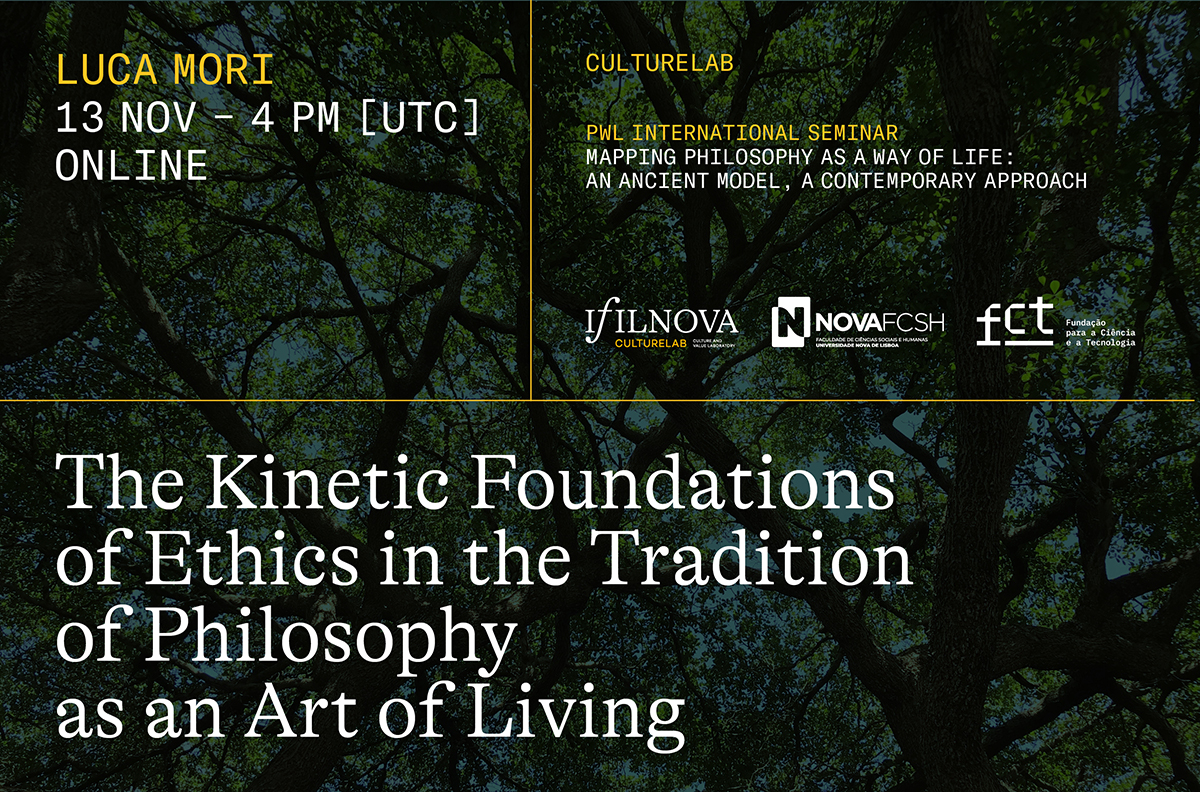Luca Mori

13 November | 4 PM (UTC)
11 AM New York
1 PM Brasilia
4 PM Lisbon
5 PM Berlin
For other locations click here.
Abstract
Various systems of philosophical exercise for the care of the self share the idea that the telos to aim for (stable eudaimonia, apatheia, ataraxia etc.) involves regulating the movements of the mind or soul (psyché, animus, etc.), either literally or metaphorically. In general, it is about avoiding that the soul is affected by agitation and turbulent movements (perturbationes animi) linked to the whirlwind of circumstances (turbo rerum, according to Seneca; ē éxōthen perirréousa díne, according to Marcus Aurelius). The part of the soul where desires (epithymíai) reside is prone to being tossed up and down (metapíptein áno káto, Plato); excess and deficiency produce instability and large movements of the soul (megálas kinésias of the psyché, according to Democritus); even though the animus is very inclined toward motion (pronus ad motus), we aspire to not be shaken (non concuti, as Seneca says); constancy and happiness are correlated (eustathêsai and eudaimonêsai, as noted by Epictetus) and, in order to achieve them, we must avoid being dragged along by representations (phantasíai) that do not capture the reality of things; we must avoid being dragged and pulled by impulses like puppets (neurospastethénai, Marcus Aurelius), becoming stable like rocks despite the endless crashing of the waves. Other authors and different theories focus on how to prevent or immediately block the uncontrolled motion of impulses, why it is preferable to choose katastematic pleasures over kinetic ones, etc. By comparing some case studies, the analysis seeks to clarify how and why philosophy, as the art of living, has led to research into the movements of the psyché and the methods we have for controlling them.
Bio
Luca Mori is a researcher in the History of Philosophy at the Department of Civilizations and Forms of Knowledge at the University of Pisa. He directs the series Filosofie dell’esercizio published by ETS Editions in Pisa. Among his publications: Gli esercizi di Socrate. L’arte di migliorare se stessi, Pisa 2023 (= The Exercises of Socrates. The Art of Improving Oneself); Cinetica della psiche. Cura di sé ed esercizi dei filosofi dal mondo antico al XVII secolo, Pisa 2021 (= Kinetics of the Psyche. Self-Care and Exercises of the Philosophers from the Ancient World to the 17th Century).
Registration required via email to mapping.pwl@gmail.com.
Event supported by the Foundation for Science and Technology (Fundação para a Ciência e para a Tecnologia) of the Portuguese Ministry of Education and Science within the scope of the CultureLab research project “Mapping Philosophy as a Way of Life: An Ancient Model, A Contemporary Approach” (2022.02833.PTDC).

